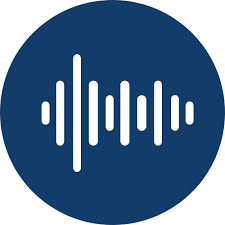It’s easy to focus on our weaknesses.
From an early age, we are constantly reminded about our short-comings and the things that we need to improve. When you get an “A” in school, time just passes by. But, if you get a “D,” then the world stops and all focus is on that one letter.
As we grow older, the pattern continues in the workplace. Our bosses only make surface acknowledgements of our accomplishments while ranting about the things that need improvement. Since this is how we grew up, we pass it on to our kids.
The cycle continues.
Maybe that doesn’t describe you, but it does describe many of us and how we grew up. There is too much of an emphasis on the negatives and the weaknesses. And it causes our growth to slow – or even stop.
The better way is to focus on your strengths.
What are you good at?
Find that, improve it, and you’ll start to see more success. True, you may not be able to work only in your areas of strength, but try to arrange things so that you can do it a majority of the time. I’ve heard it said that you should try to work on your areas of strength 80% of the time and 20% in weaknesses/growth areas.
Years ago, I became a supervisor at Hardee’s. I took over the duties of scheduling, which she was glad to give up. I also started doing more of the book work (on the days I was there). I also started helping more in the inventory. These were more detailed tasks that she didn’t care for, but she did them because it was her job. I took it over, and it help both of us.
The DISC profile helps you to understand your personality – specifically, how you like to give and receive information. Chris LoCurto shares some great information about this in episode 34 of the QLMS podcast, but here’s a quick breakdown of DISC:
- D – Dominant
- I – Influencing
- S – Stable
- C – Compliant
The D and I are more outgoing, while the S and C aren’t. The D and C are more focused on tasks, while the I and S focus more on people. There’s obviously more to it, but that’s a quick overview. Listen to this episode to learn more.
Looking back, my high “C” complimented the D/I of my manager at Hardee’s. (Well, I don’t know for sure if she was D/I – that’s just an analysis based on my memory bank)
I took the DISC profile test back in February/March of 2013, and here’s what my results were (and a nice picture of myself):
When you learn what your tendency is, it helps you to focus more in that area (an area of strength). This helps to gauge the type of work that you do best in. For example, a high “C” would do better in a bookkeeping kind of role, while an “S” would excel in a human resources position. If you are a high “I” and trying to keep the books for a company, then you will drive yourself crazy and eventually hate your work – because you thrive on high human interaction.
I started (mostly subconsciously) to work more in my “C” after taking the DISC profile. More than 6 months later, I took the test again, and here were my results:
I have felt more natural and at ease with trying to align things more with my personality instead of trying to force myself into different situations.
Don’t be selfish
With using the DISC profile to help work in your strengths more, don’t zero in only on yourself.
- How can you communicate with others better?
- How can you help them to work in their strengths?
Remember that 80/20 rule we talked about? There are times that you half to lean away from your preferred style toward another one so that you can communicate better. Since each style likes to give and receive information in different ways, each one needs to learn to lean in a little. When a D and C are speaking, the D needs to learn to give a little more than 3 bullet points, and the C needs to learn to condense the information down a little.
It takes time and practice, but the results are worth the effort. You’ll experience less frustration because everyone will start to understand more and actually be on the same page. Another benefit is that the people can divide tasks up into pieces that are better suited to each person.
Back to when I worked at Hardee’s: because I focused on my strengths (scheduling, book work, inventory, etc.), my manager was able then to focus on her strengths. Soon after that time, she got a promotion and we got a new manager. He was also more of a D/I, and I was able to be a compliment to him as well. Some similar things took place throughout the rest of the crew, and we were able to handle an increase in business while having a shortage of staff. (We ended the year with increased profits over the previous year and were number 1 in our region.)
Working in your strengths is vital to your growth, and understanding your DISC personality profile can really help to focus on that.
Have you been able to work in your strength? What are some benefits you’ve seen? How were you able to do accomplish that?
